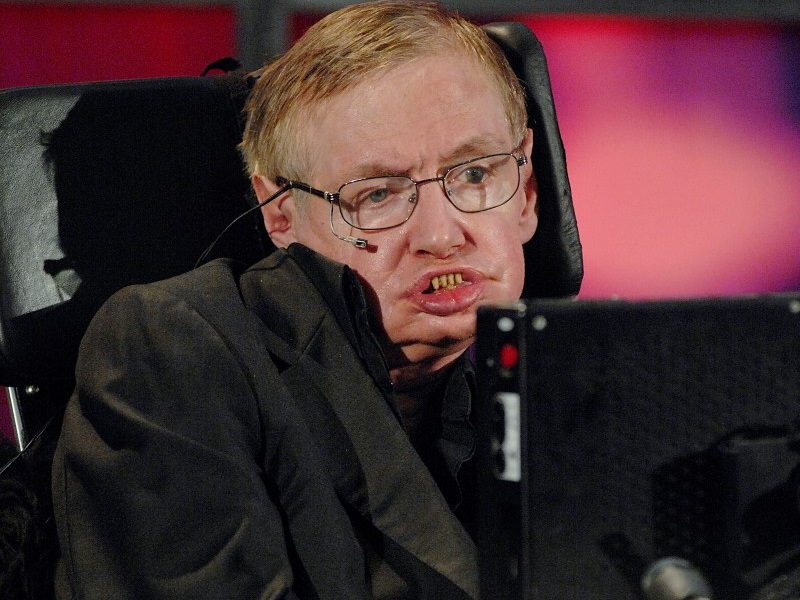- Home
- Science
- Science News
- Stephen Hawking Says Threats to Human Survival Likely From New Science
Stephen Hawking Says Threats to Human Survival Likely From New Science

When asked how the world will end - "naturally" or whether man would destroy it first - Hawking said that increasingly, most of the threats humanity faces come from progress made in science and technology. They include nuclear war, catastrophic global warming and genetically engineered viruses, he said.
Hawking made the comments while recording the BBC's annual Reith Lectures on January 7. His lecture, on the nature of black holes, was split into two parts and will be broadcast on radio on January 26 and February 2.
The University of Cambridge professor said that a disaster on Earth - a "near certainty" in the next 1,000 to 10,000 years- will not spell the end of humanity because by that time humans are likely to have spread out into space and to other stars.
"However, we will not establish self-sustaining colonies in space for at least the next hundred years, so we have to be very careful in this period," he joked, provoking laughter from the audience.
"We are not going to stop making progress, or reverse it, so we have to recognize the dangers and control them. I'm an optimist, and I believe we can," he added.
Catch the latest from the Consumer Electronics Show on Gadgets 360, at our CES 2026 hub.
Related Stories
- Samsung Galaxy Unpacked 2025
- ChatGPT
- Redmi Note 14 Pro+
- iPhone 16
- Apple Vision Pro
- Oneplus 12
- OnePlus Nord CE 3 Lite 5G
- iPhone 13
- Xiaomi 14 Pro
- Oppo Find N3
- Tecno Spark Go (2023)
- Realme V30
- Best Phones Under 25000
- Samsung Galaxy S24 Series
- Cryptocurrency
- iQoo 12
- Samsung Galaxy S24 Ultra
- Giottus
- Samsung Galaxy Z Flip 5
- Apple 'Scary Fast'
- Housefull 5
- GoPro Hero 12 Black Review
- Invincible Season 2
- JioGlass
- HD Ready TV
- Laptop Under 50000
- Smartwatch Under 10000
- Latest Mobile Phones
- Compare Phones
- Tecno Spark Go 3
- iQOO Z11 Turbo
- OPPO A6c
- Samsung Galaxy A07 5G
- Vivo Y500i
- OnePlus Turbo 6V
- OnePlus Turbo 6
- Itel Zeno 20 Max
- Lenovo Yoga Slim 7x (2025)
- Lenovo Yoga Slim 7a
- Lenovo Idea Tab Plus
- Realme Pad 3
- Garmin Quatix 8 Pro
- NoiseFit Pro 6R
- Haier H5E Series
- Acerpure Nitro Z Series 100-inch QLED TV
- Asus ROG Ally
- Nintendo Switch Lite
- Haier 1.6 Ton 5 Star Inverter Split AC (HSU19G-MZAID5BN-INV)
- Haier 1.6 Ton 5 Star Inverter Split AC (HSU19G-MZAIM5BN-INV)







![[Sponsored] Haier C90 OLED TV | Dolby Vision IQ, 144Hz OLED and Google TV in Action](https://www.gadgets360.com/static/mobile/images/spacer.png)









